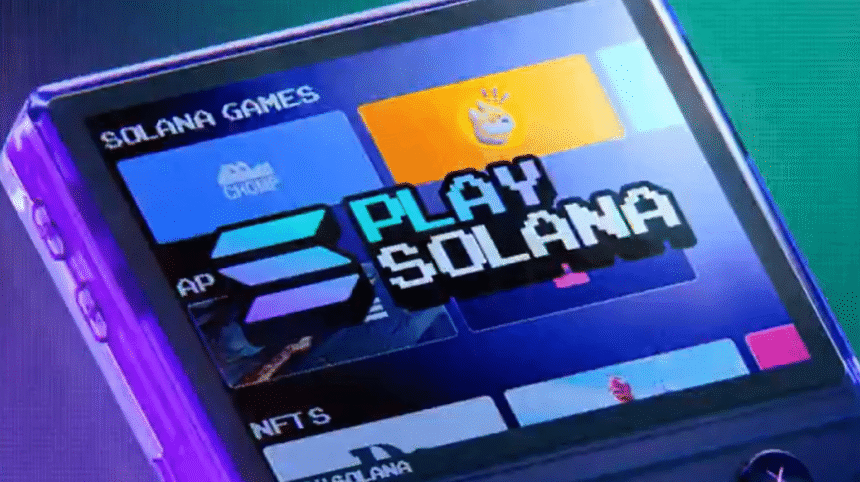The Solana ecosystem is making significant strides in the hardware space with the announcement of a new device specifically designed for Web3 gaming. Play Solana, a venture dedicated to creating gaming devices on the Solana blockchain, revealed that its inaugural model, the Play Solana Gen 1 (PSG1), will be available for shipping starting October 6th, priced at $199.
The PSG1 console boasts impressive gaming specifications, including an octa-core ARM processor, 8 gigabytes of RAM, as well as WiFi and Bluetooth connectivity. Additionally, it features a touch LCD screen, positioning it as a capable device for both modern and nostalgic gaming experiences.
What truly sets the PSG1 apart is the integration of a built-in Solana wallet. This allows users to store, receive, and send cryptocurrencies and NFTs directly from the console. This seamless integration facilitates the development of games that incorporate true digital identity, allowing players to blend gameplay with actual asset ownership in ways that traditional gaming consoles cannot achieve.
In a bid to promote early adoption, Play Solana has initiated a limited NFT collection. This effort allows 2,000 NFT holders to access the PSG1 console before general release, reinforcing a sense of community and investment in the growth of the Solana gaming ecosystem.
The console is designed to cater to a wide array of gaming preferences, with the capability to support everything from retro pixel-style games to advanced modern titles. It is also expected to run Solana-based decentralized applications (dApps), serving as a central hub for distributing Web3 games on the network.
Play Solana is not the only entity exploring the intersection of gaming and blockchain hardware. Competitors such as Sui have announced plans for their own console, the SuiPlay0X1, which is slated for a 2025 launch. This push across various blockchain platforms signifies a growing trend towards making on-chain gaming more accessible and engaging.
In addition to these developments, the focus on security within the gaming hardware space is intensifying. B3, a Layer-3 Web3 gaming protocol established by former Coinbase and Ethereum engineers, is working on the B3PC, a gaming machine with self-destruct mechanisms designed to protect sensitive crypto information. Players on this platform will have the capability to erase or even physically destroy their sensitive data at the touch of a button, enhancing security measures significantly.
Moreover, players engaging with this system can earn rewards in Agora’s stablecoin, AUSD, creating a link between gameplay and tangible financial benefits. This convergence of gaming and cryptocurrency highlights the rapidly changing landscape of the gaming industry, with new innovations emerging to meet the demands of a decentralized digital economy.







